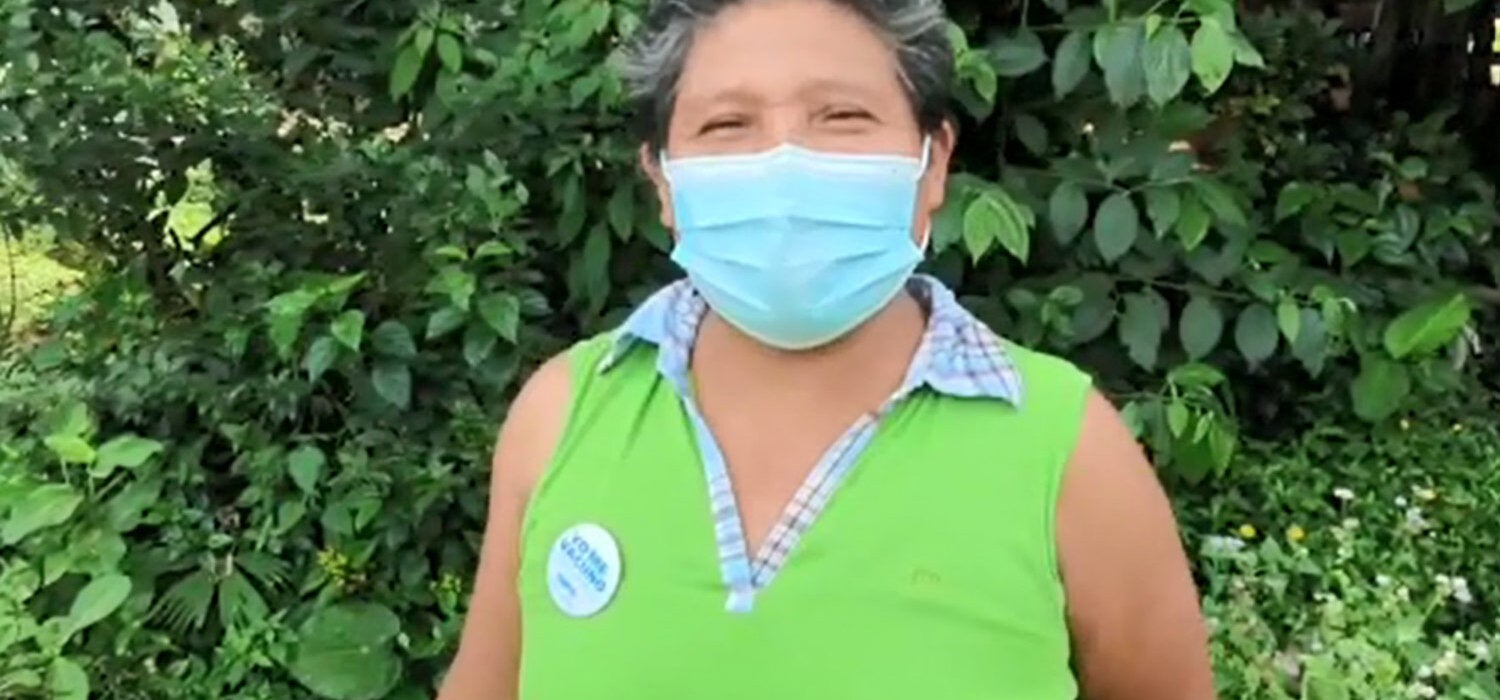August 9, 2021
In the Ngäbere indigenous language, Elicia Bejarano, from the Abrojo Montezuma community, in the canton of Corredores, Puntarenas, Costa Rica, invites others in her community to get vaccinated: "let's get the vaccine against COVID-19 so that (the virus) doesn't affect us seriously," she asks.
Elicia was one of the leaders who participated in the dialogues and training workshops on risk communication promoted by the Pan American Health Organization (PAHO) and the Indigenous Development Associations in eight indigenous communities, with the aim of improving communication capacities on COVID-19 and vaccines at the local level, answering the main doubts on the subject and sharing informational material to be adapted or distributed in the communities.
In Costa Rica, 104,143 people self-identify as indigenous, which corresponds to 2.4% of the country's total population. They are divided into eight peoples: Bribri, Cabécar, Terraba, Brunca, Gnäbe, Chorotega, Huetar and Maleku, and live in 24 indigenous territories recognized by the State.
Although there is no data on the number of indigenous people who have acquired the SARS-CoV-2 virus, the pandemic has disproportionately affected this group, which was already historically vulnerable. The digital divide amplified the isolation generated by the confinements. Women, who are caregivers and trainers in their community, were more exposed to the virus; financial difficulties made it more difficult to follow recommended protective measures to prevent spread, increasing the risk of infection. However, for some communities such as the Boruca, the decline in tourism meant a return to seed cultivation and a reminder of ancestral knowledge.
Vaccination of indigenous peoples: a family priority in Costa Rica
Vaccination in rural areas and particularly in indigenous communities began in the first weeks of March 2021. But in the first week of July, the Government and the Vaccination Commission made vaccination a priority for all persons over 12 years of age in indigenous territories, with the understanding that the approach to health in indigenous territories should be focused on the family.
Thus, the workshops on risk communication promoted by PAHO and aimed at community leaders of local governments, as well as community groups working in the response to the pandemic, were an opportunity to strengthen their capacities to communicate at the local level, in their language, based on their beliefs and respecting their knowledge.
It is expected that the participants will now lead risk communication processes on COVID-19 and vaccination in their communities, and that, with their intervention, vaccination in indigenous communities will progress gradually, leaving no one behind.
The initiative is part of the project "Support for addressing COVID-19 in indigenous communities in Costa Rica," which began in 2020 and continues in 2021 through the strengthening of the communities' competencies to organize themselves and respond to the emergency. This year, the project includes strengthening community response groups so that they can update their COVID-19 action plans, with an emphasis on risk communication and promotion of COVID-19 vaccines.



